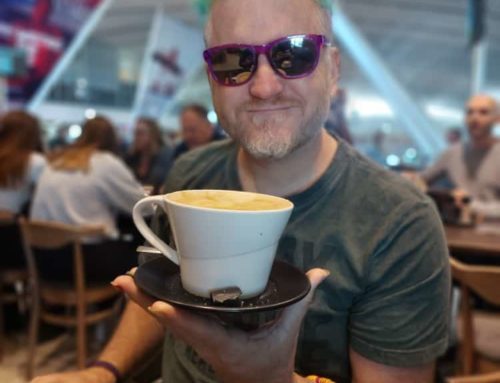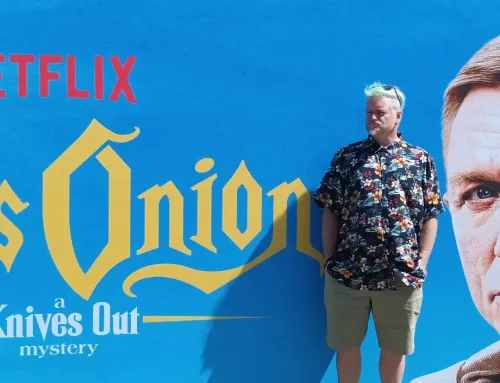So yesterday i visited my first ever stroke victim’s support group.
i should perhaps clarify up front that i have not had a stroke. My friend Stephanie runs the group and invited me to come and check it out after i had an encounter with a stroke victim at the clinic she runs speech therapy at, which led to this status last week:
i walked into a clinic today to drop a book off for a friend i have not seen for years.
Small waiting room and surrounded by a few patients who all seemed to be stroke victims of various degrees.
While i was waiting this old man was pushed out back into the room in a wheelchair and was sitting in the middle of the room (really small room) basically right in front of me so i looked at him and smiled.
“What’s wrong with YOU?” he asked, in a way that felt completely compassionate and interested (maybe surprised cos i clearly didn’t appear to belong like everyone else did)…
i thought for a second and before mumbling the “nothing” that immediately came to mind, i managed to stumble out a more honest, “You know what, quite a lot probably, but nothing physically, i’m just here to see a friend.”
It was a simple interaction, but it felt quite profound in some way. i have always been typically quite nervous of chatting to people who have some kind of disability or physical/mental issue purely from the perspective of being so scared i get it wrong.
But this time i don’t think i did and at that point my friend came out and i gave her the book and turned to go, first giving the gentleman a big smile and an acknowledgement of humanity and importance.
It was a brief and special encounter and in some way hopefully helped me deal in part with an irrational but very real fear.
Thanks Mr Guy. You made my morning. Now back to the rest of the stuff that’s wrong with me…
Stephanie picked me up and we headed to the hospital where this group meets and she had organised with a friend of hers to share some words about the foot Reflexology business she runs, which was super interesting in itself.
i didn’t have a lot of engagement with the people in the group – and as i was looking for a picture to stick with this blog post i saw the phrase ‘stroke victors’ which i think is a lot friendlier than stroke victims so let’s use that from now – because the session was more of a lecture format with some space for questions, but even just through the greetings and watching the interactions and something as small or as large as watching for which hand to offer to shake, it was a really fascinating time. i thoroughly enjoyed it.
As a child we used to visit a children’s home for physically and mentally disabled children once a week and my folks would sing songs and tell some stories and it was truly an amazing time. But i didn’t experience it like that because nothing was really explained to me and so i went to this place where the other children were all strange to me and had really weird and in some cases scary behaviours and so the whole thing freaked me out and i hated going. Which is horrible. And i think has affected me for the rest of my life in terms of being scared of being around people who are different than me [specifically physically/mentally] and the overriding factor for me has been this question:
What if i get it wrong?
i chatted to Steph a little bit about that on the way to the hospital and the question of what happens if someone is speaking to you and you’re doing your best but you can’t understand them after the fourth time they have tried to explain themselves, when do you run screaming and hide? Her response to me was that most of them have become quite creative at getting their message across even when their words don’t help them and so sign language and most of them can write and so they will find a way.
As someone who works with them regularly, Steph was so supremely calm and pretty much the unspoken message of “You don’t have to be afraid” rubbed off on me and so i totally wasn’t. i greeted people, well they all came over and greeted me cos we got there first, and it felt like such a privilege to be able to be in that space and see such a diverse group of people, all affected in different ways, some more severely than others, displaying this amazing sense of community and care for each other and interest in each others lives and what was going on.
There was one moment where this youngish guy [30 something i think] with dreads who had just had a recent seizure i think was trying to get a message across and the group were struggling to understand him. He used partial words and did some pointing to body parts and it was this slow process of ‘woman?’ Yes. ‘in a wheelchair?’ Yes. Until the message was received. It was a beautiful thing to watch. Because i am aware of my own and others need for speed and how frustrated we can get if we don’t get it first time around, but everything was just slowed down and there was some guesswork and acknowledgement of it being correct or not and a process of working towards the answer.
Sho, there is a powerful lesson for angry online social justice activists in all of that, i think. Which i have been thinking about for a long time, in terms of how do we respond to people online who are trying to figure stuff out but maybe not using the most helpful words or taking too long or whatever…
i cannot imagine how frustrating it must be for some of the group who are completely fine mentally, but their muscles and bodies are not obeying them. Steph is doing an amazing job with them – she makes it look so easy and her care and compassion for each one of them is so obvious [and you can read some of her words on her blog over here on various related topics]. i think what i took out of watching her in action is that there wasn’t a sense of her dealing with stroke victims, but definitely stroke victors – an awareness where there needed to be that this is the context they are in, but the rest of the time you wouldn’t have guessed anything is wrong with them as she treats them like normal people.
If you’ve never read some of the amazing stories in the Taboo Topics section on my blog about living with special needs or disabilities, this reminded me of some of those. People who don’t want to be defined by their disability or special need but want to be loved and cared for and treated well just like the rest of us do.
As a person who has not had a stroke, i definitely walked away from that group with a sense that i had gained so much, without contributing anything. Maybe the ability to let go of even more of that fear and just become a little bit more natural at engaging with people who are very different from me and even getting it wrong, whatever that means, from time to time.






![The Road to the Catan World Champs in Malta 2022! [Part II]](https://brettfish.co.za/wp-content/uploads/2022/11/IMG_9944-scaled-e1669831201283-500x383.jpg)
This is great. Thank you for sharing, Brett. And for taking the time to do what you did.